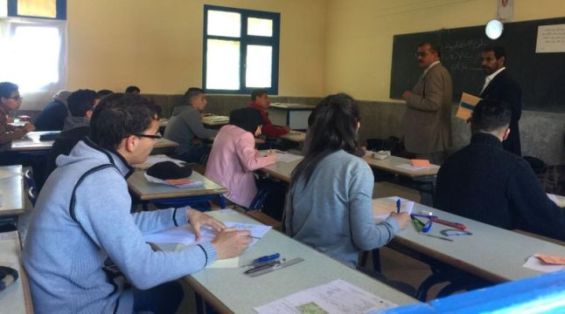«Suicide is conceived and perceived through primary and secondary socialization», introduces Moroccan psychosociologist Mouhcine Benzakour. Rigid social norms and high expectations imposed on young people by their family, community, school, and society in general can exert overwhelming pressure. Similarly, the quality of family life, particularly intra-family violence (physical, psychological, sexual), as well as socio-economic difficulties, foster an anxious climate for young people.
Young people are often confronted with tensions between their cultural identity and the traditional values conveyed by their family and environment. They are «people in a developmental phase», says Benzakour. Intergenerational conflicts can arise as they seek to assert themselves individually while respecting pre-established cultural norms. This conflict can lead to feelings of disorientation and even loneliness.
What's more, the emphasis on academic, professional, and social success can lead to feelings of inadequacy and despair in those who feel unable to meet these expectations. «Adolescents put on a show for their families. They inflict self-imposed pressure to live up to the challenge they've been given», says the expert.
The pressure around the baccalauréat, or graduating high school in Morocco, perceived as an absolute expectation, is a prime example. They have to reach a «threshold of success or risk being at the bottom of society's social ladder», illustrates Benzakour. This desire to climb the social ladder is accentuated by the family, who constantly hammer home high standards, pushing teenagers to conform and excel.
School pressure
School sometimes comes with its own set of stress and exclusion factors. «School pressure is a risk factor for suicidal acting out, particularly on the occasion of burnout», says a report on suicide among teenagers, published in 2018. Academic failure leads to a decline in self-confidence. Young people who drop out of school are twice as likely to engage in risky behavior as those who stay in school, as demonstrated by the tragedy of the young high school girl, which occurred this Tuesday, June 11.
Added to this burden is the pressure to «conform to one's peers» and the exploration of identity. Difficulty joining a group of friends at school can lead to feelings of isolation and the risk of harassment, whether real or virtual (cyberstalking). Harassment is a form of repeated violence that can take various forms: verbal, physical, and/or psychological. When this phenomenon occurs at school, the victim is unable to protect themselves against their aggressor(s). «It increases the risk of suicidal ideation by a factor of two, and the risk of suicide attempts by a factor of three», says the study.
As Benzakour points out, the pressure exerted by the first instances of socialization, namely the family and school, causes «anxiety and stress, and exposes young people to adversity». However, he asserts that «they are triggers, not causes».
Reform for prevention
In many cultures, mental health is still surrounded by stigma and taboo. Young people may hesitate to seek help due to fear of judgment or the shame associated with mental illness. Such stigma can impede access to mental health services and prevent young people from receiving the support they desperately need.
Benzakour severely criticizes the way schools currently operate and the inadequacy of the measures taken by the government, claiming that the Moroccan state «must seriously consider strategies, such as the installation of listening cells, psychologists, and social counselors».
«The government must take suicide seriously», he insists.
According to him, «it's time to review the education system and abandon the model that imprisons students for 8 hours at school, which is simply inconceivable», he declares.
Adolescents no longer take the time to escape through extracurricular activities such as «sports or walks», which are nevertheless beneficial to their mental well-being, notes the expert.
To effectively counter the risk of suicide among teenagers, he recommends personalized guidance and appropriate support measures. He stresses the importance of accessing «appropriate resources» and remaining alert to «early signs of psychological distress». An empathetic and less oppressive environment is essential to enable young people to navigate this critical period of their lives with greater serenity.
Parents, educators, and society need to work together to help students «find a balance. Without balance, you automatically open the door to suffering. There's a risk of falling into depression, of developing social anxiety», warns Benzakour.
The psychosociologist calls for concrete action and structural reforms to meet the growing challenges of adolescent mental health. By improving the educational and social approach, listening to students' needs, and offering them appropriate support, young people will evolve in an environment conducive to their healthy and balanced development, thus reducing the risk of psychological distress and suicidal behavior.





 chargement...
chargement...












